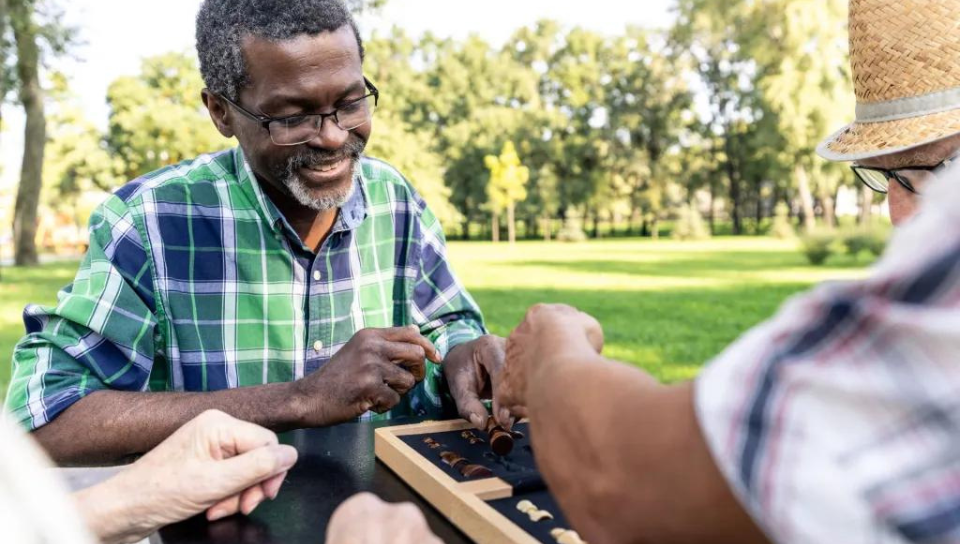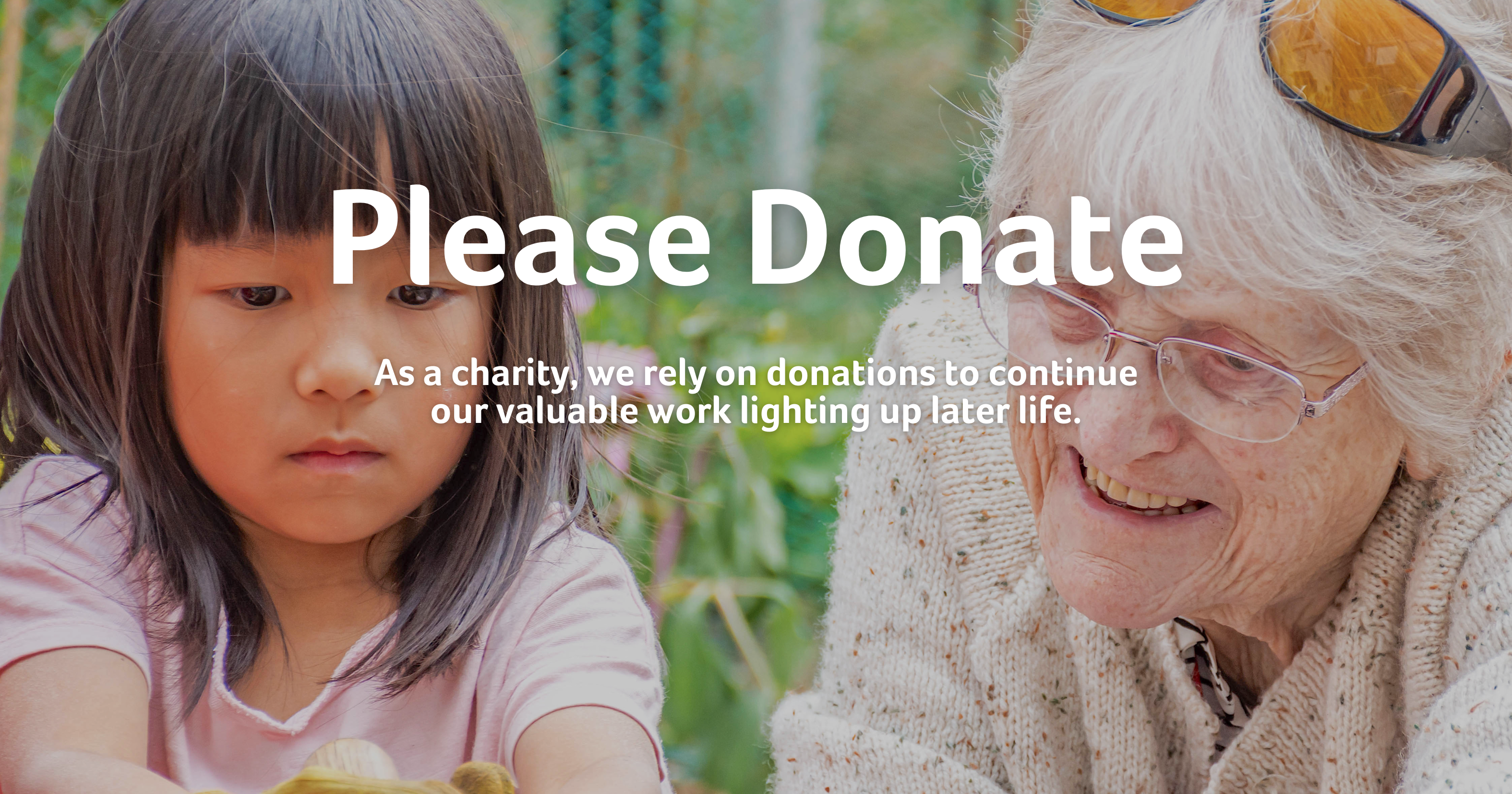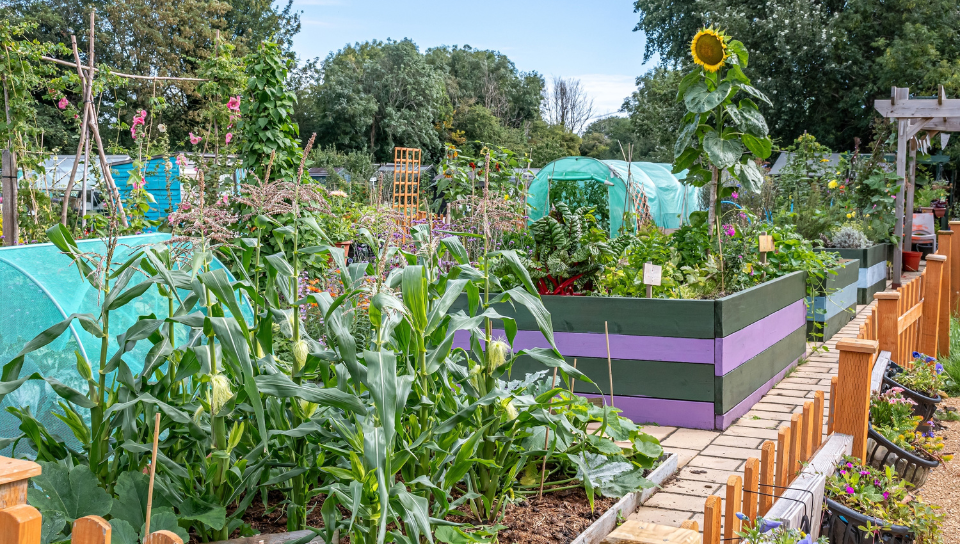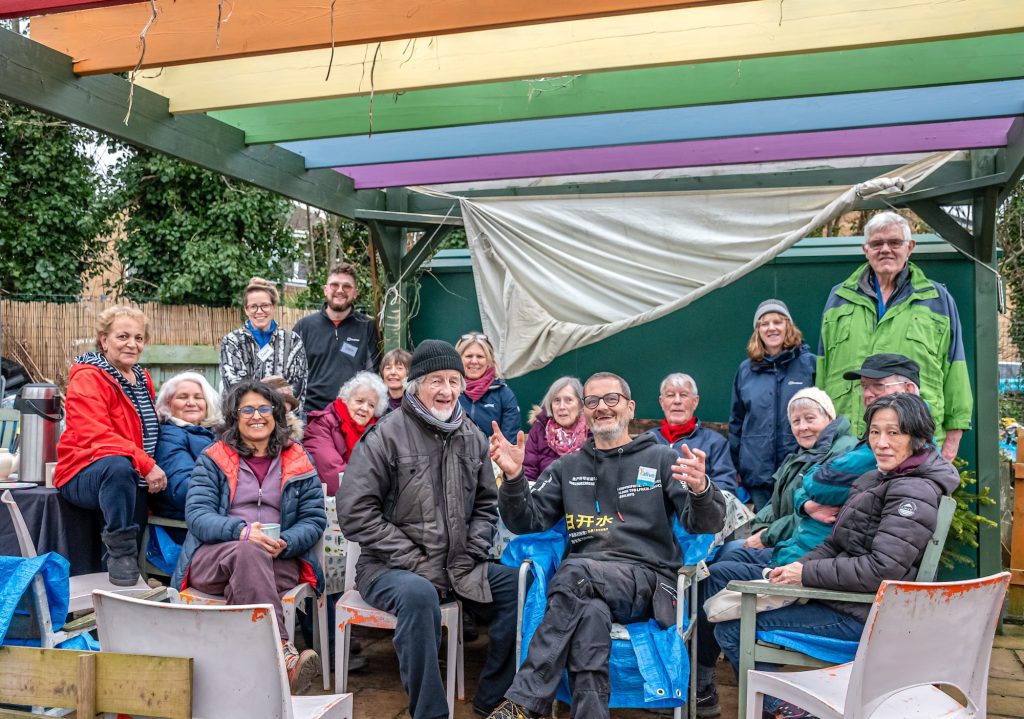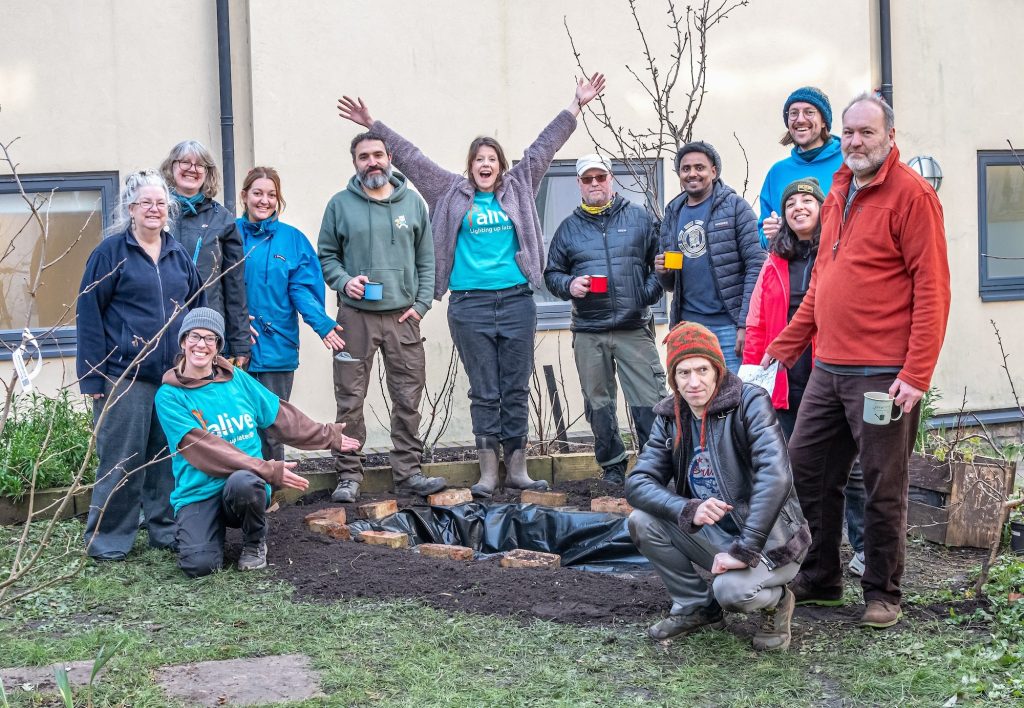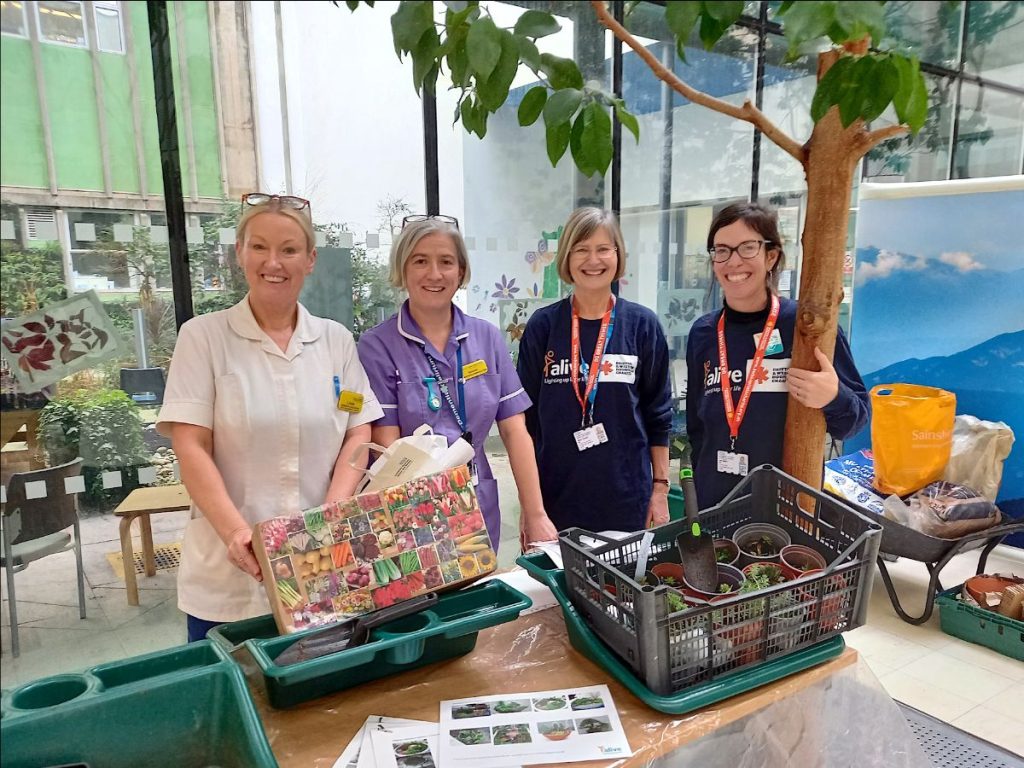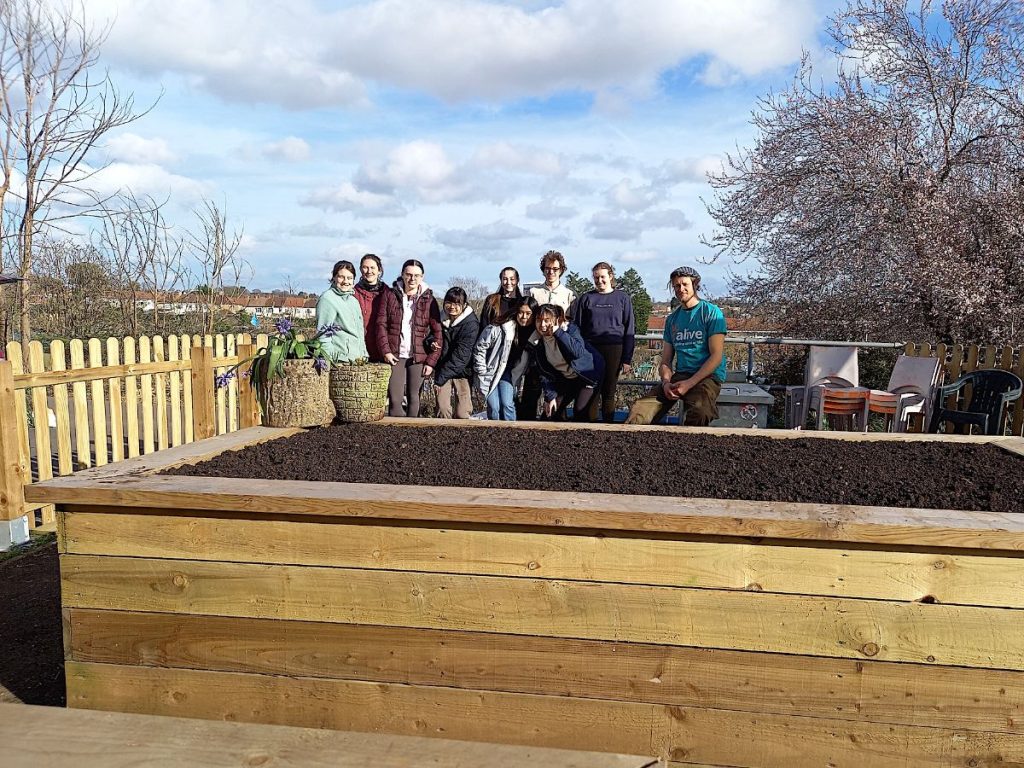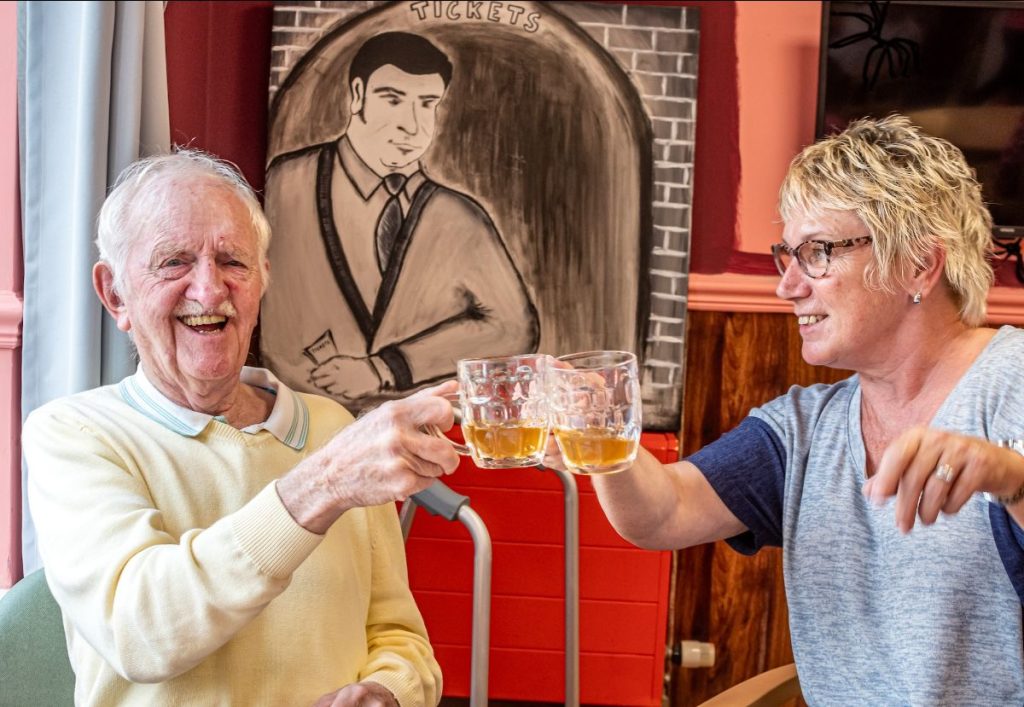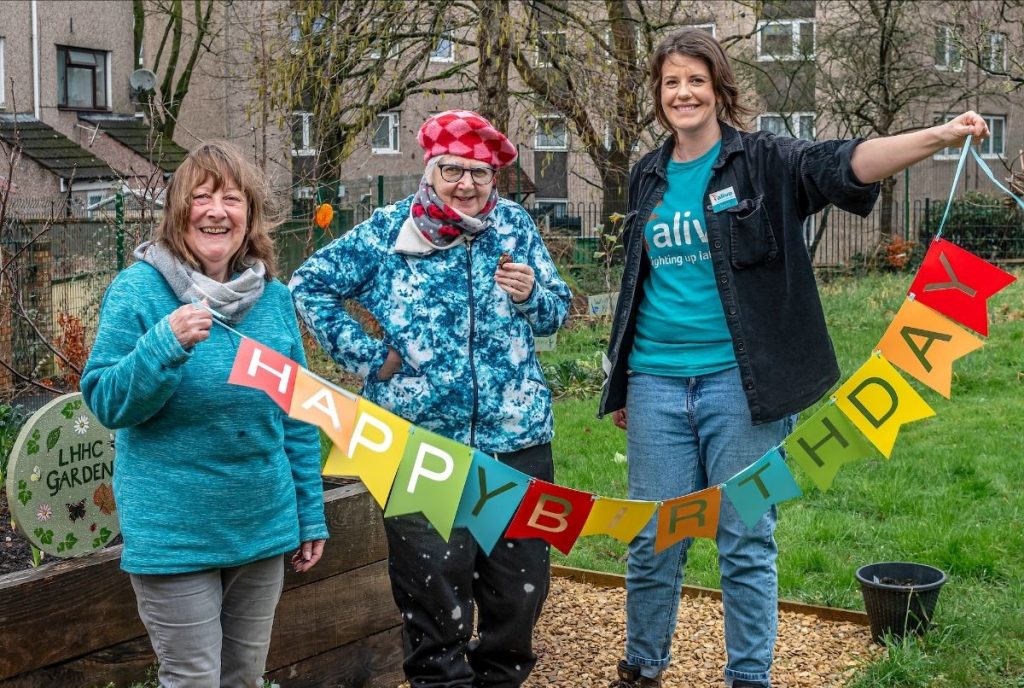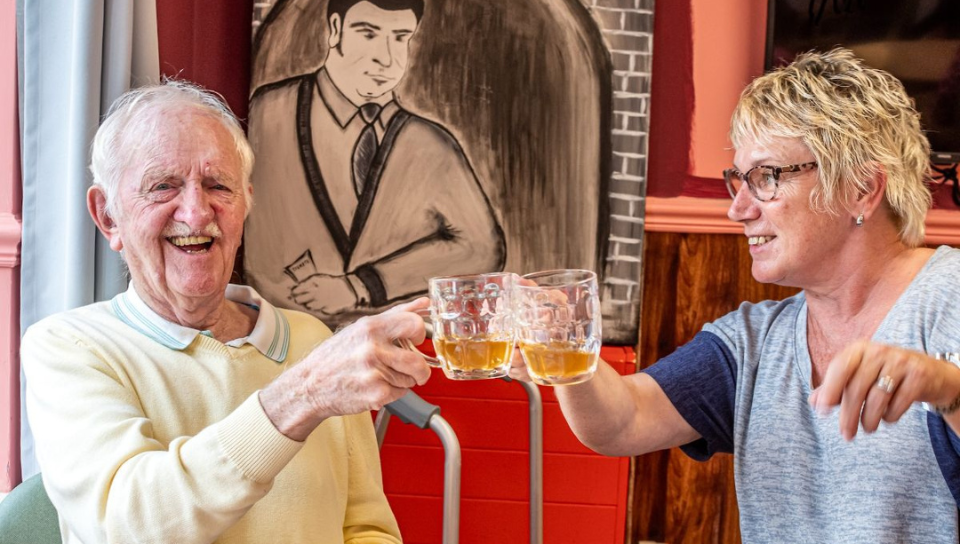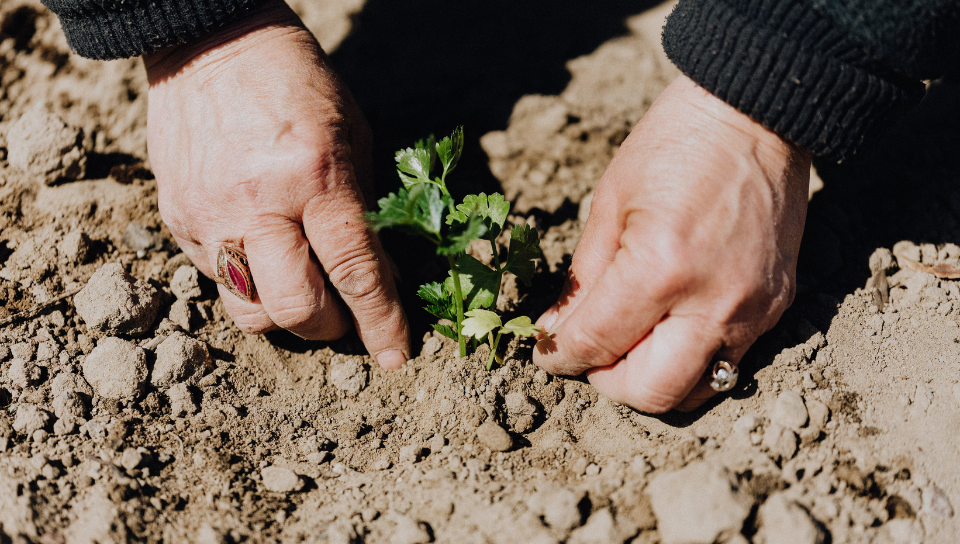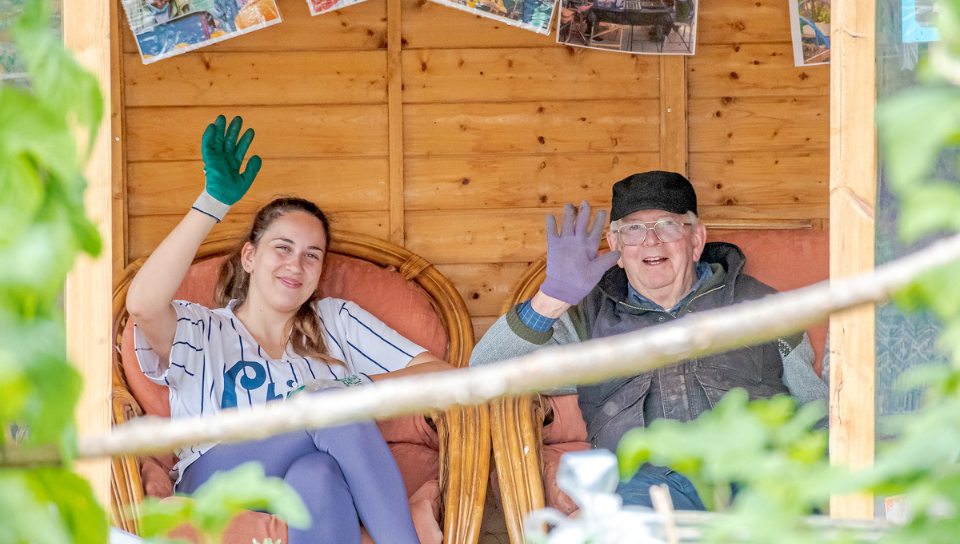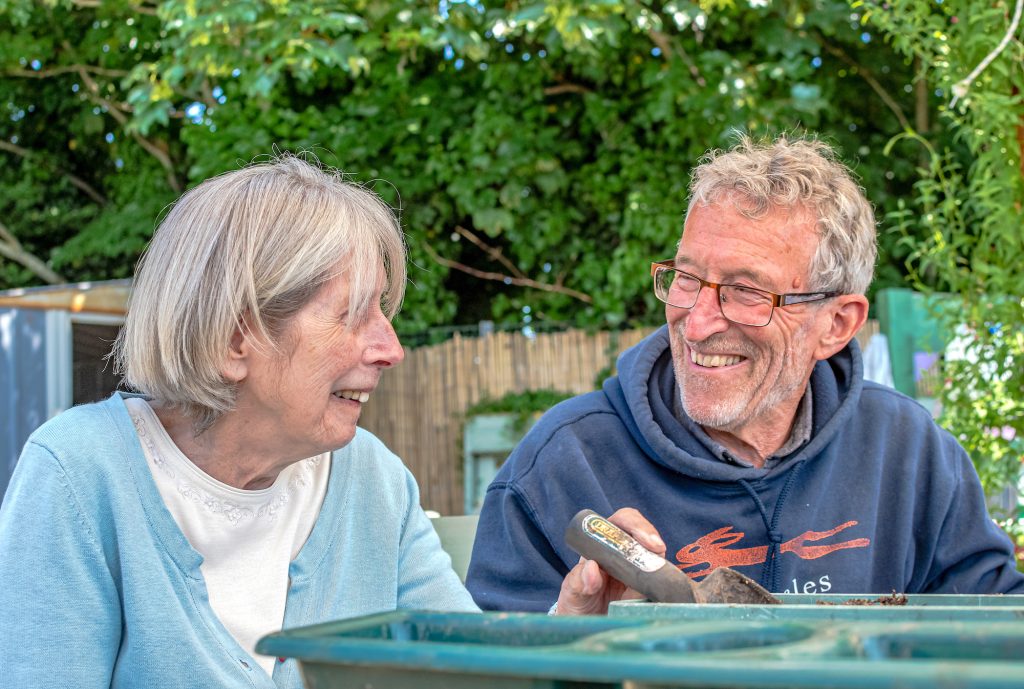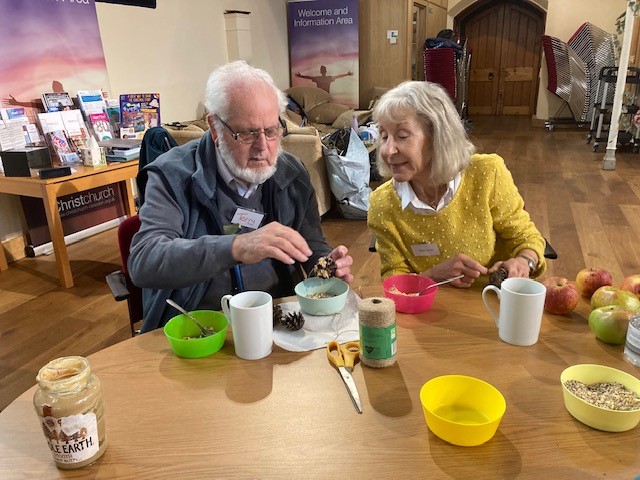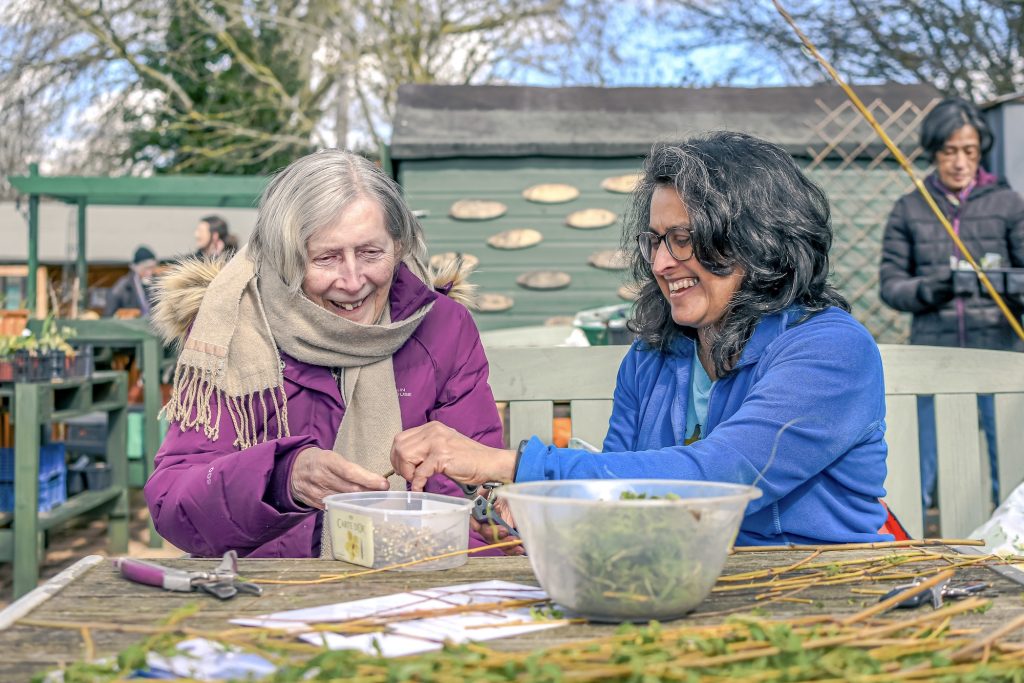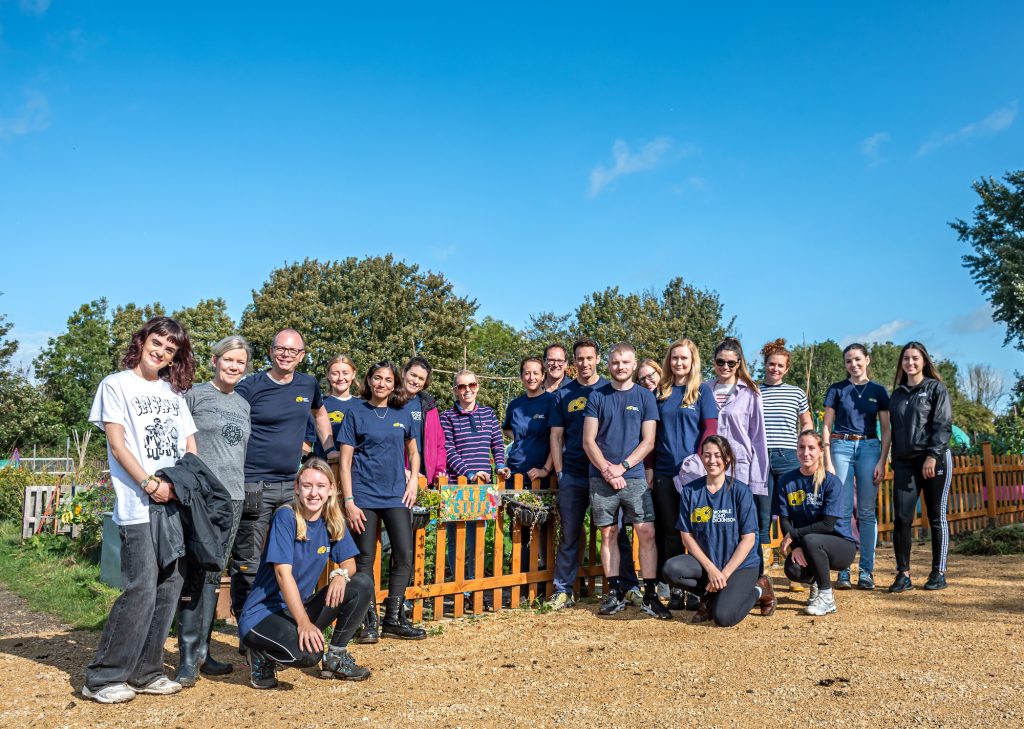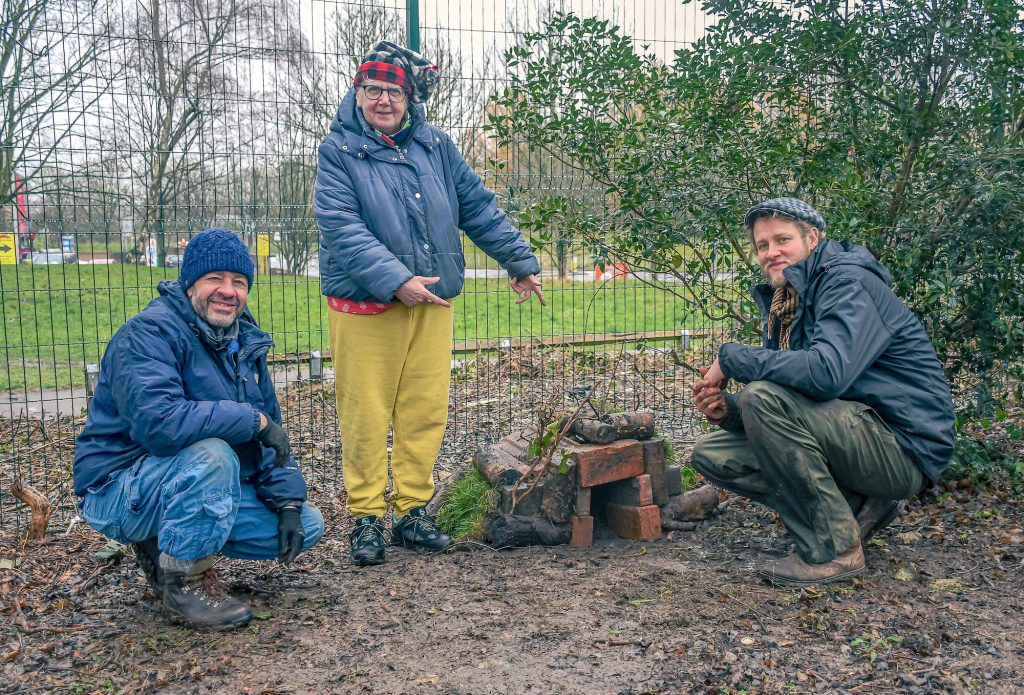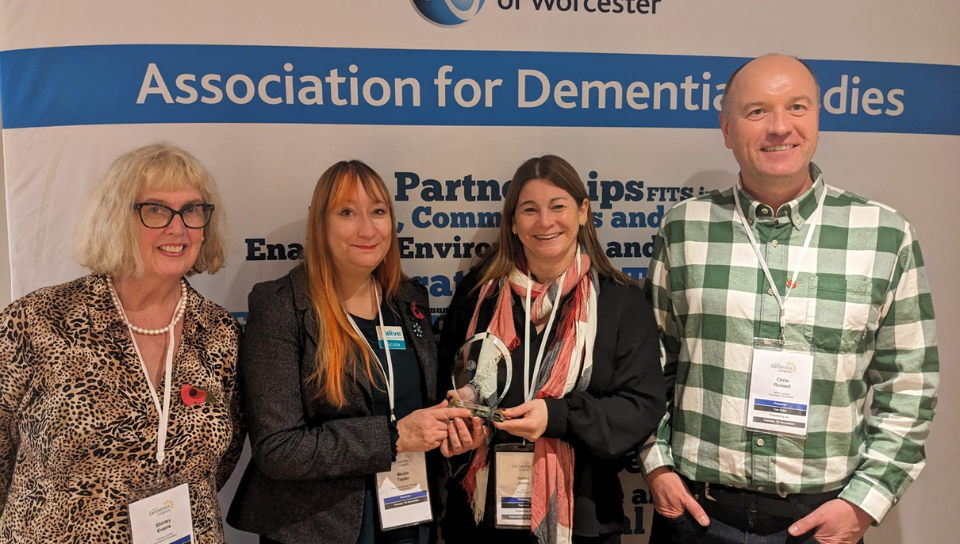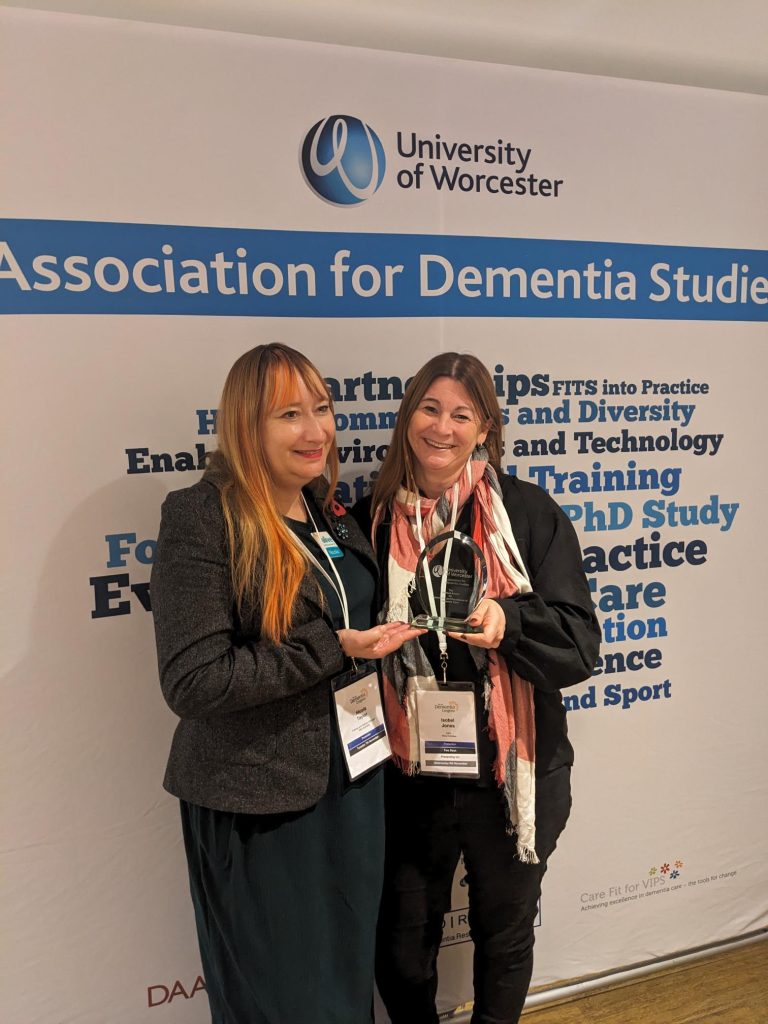Inspiring Older People and Those Living with Dementia to Express Themselves: from guest writer, Jackie Edwards.
Diving into the world of garden art isn’t just a pastime; it’s a portal to a life bursting with joy, especially for our cherished older generations. Creative Ireland’s study shines a spotlight on this: those older people painting their world with the vibrant strokes of creativity are dodging the spectre of loneliness, side-lining sadness, and kicking stress to the curb. And for those living with dementia, the garden becomes an arena of magic—where stress withers away, and the joy of connection blooms. This isn’t just a hobby; it’s a canvas where life’s golden years get a touch of green-thumb brilliance.
Exploring the benefits
Ongoing research suggests that creativity may be key to healthy ageing, notes the Washington Post, which points out that studies show that participating in activities such as singing, theatre performance, and visual artistry could support the well-being of older adults. Furthermore, it’s noted that creativity “which is related to the personality trait of openness,” can lead to greater longevity. Regarding the link between creativity and those who experience dementia, Age UK notes that there is a developing body of research that suggests engagement with the arts can help such individuals. Arts for Health’s handbook, titled ‘Dementia & Imagination,’ centres on arts workshops for older individuals with dementia which took place in care homes and in NHS settings. Age UK highlights the comments of a participant’s spouse, who said “… his attitude towards the future has improved in the way that he is more positive and no longer dwells on ‘the prognosis!’” Another participant commented on the value of the workshops, noting the soothing nature. “You feel you are achieving something. It’s not completely gone — your mind’s not completely gone.”
In addition to the numerous benefits that getting creative can have, it’s imperative to take into account those associated with outdoor green spaces, like gardens. In a paper published in the North Carolina Medical Journal, Lincoln Larson and Aaron Hipp, Associate Professors of Parks, Recreation and Tourism Management at North Carolina State University, discussed the value of green spaces (such as parks) regarding health. “People who spend more time in nature enjoy enhanced cognitive functioning and attention and reduced stress. They are also less likely to display anxiety disorders and depression and more likely to report high levels of happiness and well-being.” To further highlight the benefits, particularly in regards to older individuals, a 2022 study of four U.S. cities, for example, found that high residential green space was associated with a reduced risk of dementia among older adults. By injecting creativity into gardening in the form of garden art, older people and those experiencing dementia can reap the benefits of both activities, particularly when it comes to encouraging self-expression.
Unique and eye-catching sculptures
For those looking to explore creativity by creating garden art, there are no shortage of options out there. HGTV highlights several options for creating garden art with recycled materials — for example, an unused coil of heavy wire can be transformed into the shape of animals and displayed amongst the plants, while lumber scraps can be used to create a unique sculptural piece. “Save the most colourful and interestingly-shaped bottles from your glass recycle bin and decorate a tree or bush with them, preferably one that is dormant in the winter or dead and too large to be easily dug up,” states the post.
Midwest Living highlights several additional ways to go about creating unique pieces for the garden, from using a wagon to create a statement piece by filling it with colourful plants, painting a checkerboard onto an old stump to create a functional gameboard, or by adding whimsy with a unique stone sculpture — to name just a few. With endless opportunities for creating something truly unique, self-expression can be allowed to flourish — whether it’s through creating something that aligns with one’s personality or interests or simply working with a favorite colour.
Creating sentimental keepsakes
Creating garden art can also benefit older people and those living with dementia by serving as a way to stay connected and spend time with loved ones, as it can help prevent loneliness, contribute to social interaction, and provide support. A 2016 BBC article highlights a survey, which found that 42% of the public think that there is no point in keeping up contact at the stage of the disease in which a person fails to recognise the faces of friends and family. However, the Alzheimer’s Society said that family visits stimulated feelings of happiness, comfort, and security — even as the condition progresses, it said that those with dementia can still hold an ‘emotional memory.’ This means they continue to feel happy long after a visit or experience.
Exploring creativity through garden art can easily be integrated into family visits and time spent together. Crafts such as creating a sculpture, or a personalized flower bed, can create memories that will last a lifetime. Creating sentimental keepsakes, such as handmade stepping stones for the garden, or creating decorative rocks can make for wonderful creative décor that can put the focus of the craft on family and loved ones while exploring creativity through paints and tactile art (such as by arranging tiles in a mosaic stepping stone).
Finding solace through simplistic landscaping
The activity of gardening itself can also bring great benefits to older people and those living with dementia. For example, gardening encourages sensory stimulation, can improve attention span, and helps increase strength and balance while providing a sense of purpose. With that in mind, it’s important to realise that creativity can also be found in traditional gardening, providing an ideal outlet for those who would prefer to tend to a garden rather than do arts and crafts. For instance, creativity can be found in choosing colours for flowers to plant or by arranging a flower bed. Creating floral arrangements from flowers that have been grown in the garden is another way to spark creativity, though it’s imperative to point out the fact that creativity can be explored in more ‘traditional’ ways as well.
Garden art and creativity can also be explored through the renovation of a garden. For instance, integrating a unique design into a walkway, painting a garden arch or fence, or trimming the hedges into a uniform shape can all serve as therapeutic and creative outlets. Aiming to create a therapeutic garden through biophilic design is just one way in which older people can endeavour to positively transform their own gardens. This can be achieved by integrating key elements such as consistent greenery while ensuring that the biophilic environment is varied, interesting, and engaging in order to properly reflect the natural environment. Adding in plenty of flowers can also work to have a positive benefit on mental health. In fact, one study in which workers were sent flowers to arrange and consider during their break times resulted in 90% finding that it reduced stress levels.
For older people and those living with dementia, green spaces like gardens can provide a myriad of benefits while also serving as a positive outlet for creativity. From creating innovative sculptures to making keepsakes with loved ones, creativity can even be explored through traditional gardening.
About the author
Jackie has worked as a therapist, though is now partially retired and spends her time writing. Part of her therapy work involved working with older people and using horticultural therapy to engage and help with communication. Away from work, she’s married to her husband Brian – and in any free time they have, they’re taken for walks by their two dogs Cox and Pippin.
